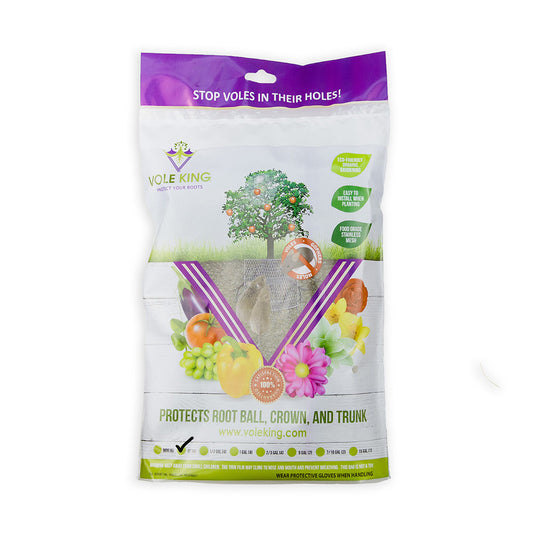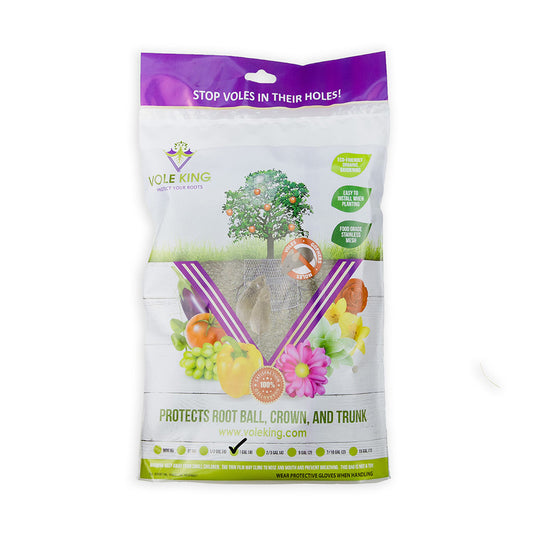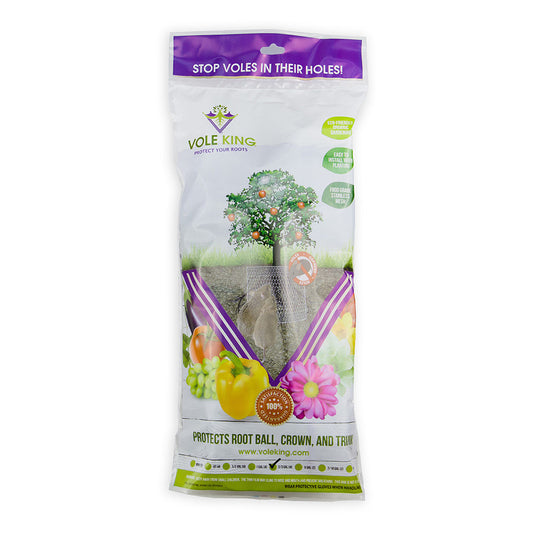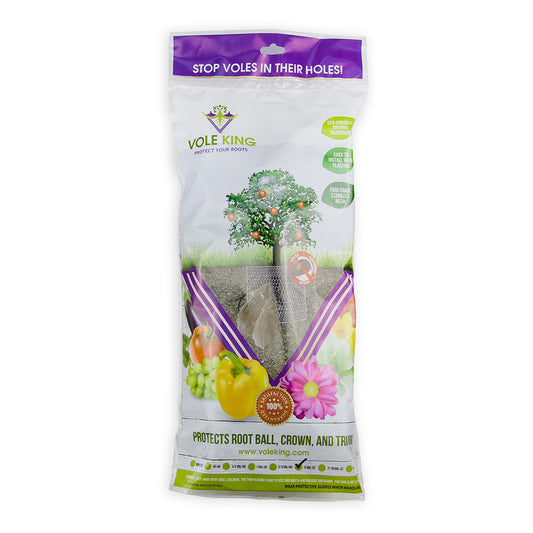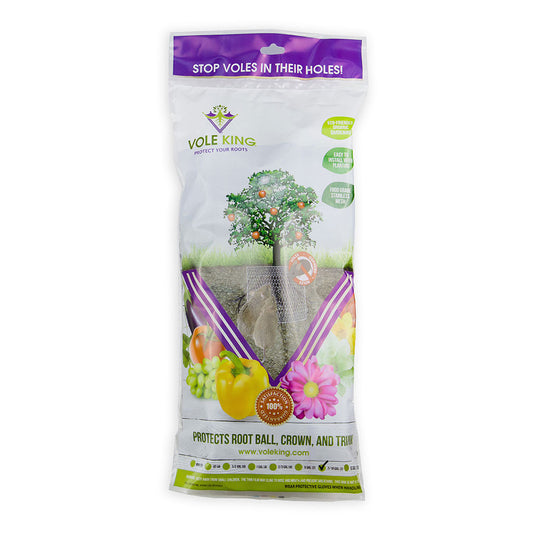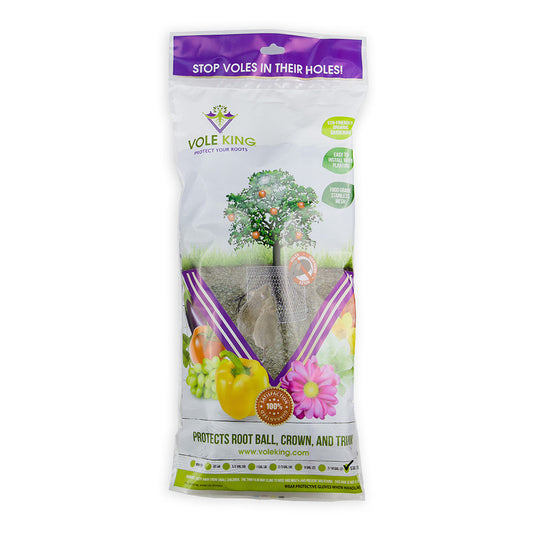
Saving Time in the Garden
Share
Happy February, Folks! We hope your year is off to a great start! It’s hard to think about gardening when a layer of glistening snow covers the ground in many areas of the country! Even if you don’t have snow where you live, no doubt this weather has you craving hot cocoa in front of the fireplace, and only dreaming of lazy summer days lounging poolside, after collecting the garden harvest (ok, maybe that’s just me!)! Last month we talked about how a little advanced planning can make your garden more successful. Unfortunately, the best laid plans can still come undone if you just don’t have the time to properly maintain your garden. The most time consuming tasks are watering, weeding, and seasonal pest management. Thankfully much of this can be minimized with a proactive approach. This month we’re going to deep dive into how proper planning can save you time and energy in the garden, so you can focus on enjoying the harvest! Let’s dive right in!
Time consuming task #1: Watering!
Water in the morning, while it’s cooler, so there’s less evaporation…and only water when needed. Water slowly to make sure it seeps down deep into the soil and doesn’t run off; it’s the thirsty roots that need the water, not the leaves. This also allows the leaves to dry off in the morning sun, which helps prevent the growth of unwanted mildew, fungus, and mold. If you don’t have time to water in the morning, or just don’t enjoy hand watering, we highly recommend using a drip line with a battery operated timer attached to the water source. A timer can be programmed to water at a set time, completely automating the process, freeing you to focus on other areas of the garden. Plan ahead to install your drip line when you’re setting up your garden, before the plants are too big to work around.
Time consuming task #2: Weed Control!
One of the biggest drawbacks to gardening is managing the weeds, because they never stop growing. Weeds seem to grow faster and more robustly than the veggies! In raised beds that allow for space between plants, the easiest way to mitigate this potential problem is using weed fabric. Install it before planting, and simply cut slots in the fabric for your plants. Not only does the fabric keep the weeds from growing, but it reduces evaporation, which means less frequent watering, conserving both time and resources.
The best practice for controlling weeds is frequent weeding. Most weeds are in the top 1-3” of soil, and are easiest to remove when they are juvenile and not heavily rooted. Daily weeding can be finished quickly, but left undone, weeds will take over before you know it. Mulching garden beds also helps to prevent both weeds and water loss. Organic weed control can also be done using vinegar (20% concentrate or higher, found at most hardware stores), or citric acid (such as Avenger). Just make sure these only touch the weeds, as both options will kill your plants too.
Time consuming task #3: Seasonal Pest Management!
I don’t know about you, but this is my least favorite part of gardening! Assuming you’re taking the organic, all natural route, squash bugs seem to multiply exponentially overnight, and Japanese beetles or aphids can destroy a plant in no time! Daily inspection of the leaves and stems, removing eggs before they hatch, and killing the live bugs has proven to be the most effective method of minimizing an infestation in an organic garden. Try using duct tape to gently lift the eggs (or live bugs if you’re like me and don’t want to touch them!) off the leaves/stems, then wrap the duct tape around to smother them, and seal it up inside a Ziploc bag before tossing it in the trash. You can also knock the bugs off into a bucket of soapy water (this works best in the morning when they’re least active), or remove the infected part of the plant, if an infestation has already formed. If infested, be sure to burn it, smother it, or throw it in the trash…do not compost or your pest problem will only grow!
Removing the habitats of harmful insects, such as leaf litter in surrounding areas, will also help reduce the insect population. As mentioned last month, complementary plants, such as marigolds, nasturtiums, and sunflowers, can also be used to help attract helpful and deter harmful insects. Think about what pests you encountered last year, and be prepared to nip the problem in the bud when they first make an appearance, before they reproduce. Your local extension office is a great resource, don’t hesitate to seek guidance!
Bugs aren’t the only pests that can destroy your garden! Plant proactively with Vole King wire mesh baskets to protect your plant’s root ball and crown from burrowing rodent damage. Vole King wire mesh can also be wrapped around melons, pumpkins, and other above ground fruits and veggies to stop the raccoons, squirrels, and other critters from eating them. Vole King is also available by the roll to protect large areas, such as garden beds, before planting. Consider putting up netting to keep birds and squirrels from enjoying your harvest before you do. If your garden will be a permanent fixture in your yard, and deer are a problem, consider installing a tall fence around the perimeter…6 feet is usually high enough for most backyard gardens. Noise makers and other deterrents, such as scarecrows, faux owls, and reflective elements such as disposable pie tins and old CDs can work to deter critters too! Your plants will thank you with a plentiful harvest!
For the ultimate low maintenance gardening experience, combine several of the tips above! Line each garden bed (raised or in the ground) with Vole King wire mesh rolls before adding soil and amendments, and top with landscaping (weed control) fabric, run your drip line, set up your watering timer, and your garden will be proactively protected from burrowing rodents and weeds, and your watering will be automated! Plant some bug repelling marigolds & nasturtiums around the perimeter or in between plants, and let them help with pest control. You’ll still need to keep an eye on other pests and pull the occasional breakthrough weed, but your overall experience should be as low maintenance as it gets, and you’ll have more time for family, friends, and summer fun!
Alright folks, now that you’re armed with tips and tricks to protect your precious plants and help them thrive, while lightening your workload, it’s time to order seeds! What are you planning to grow this Spring? Shoot us an email or let us know on Facebook, Instagram (@vole__king), and YouTube! Be sure to follow us for more gardening tips, and share with your friends! Thanks for stopping by, and Happy Planting!

